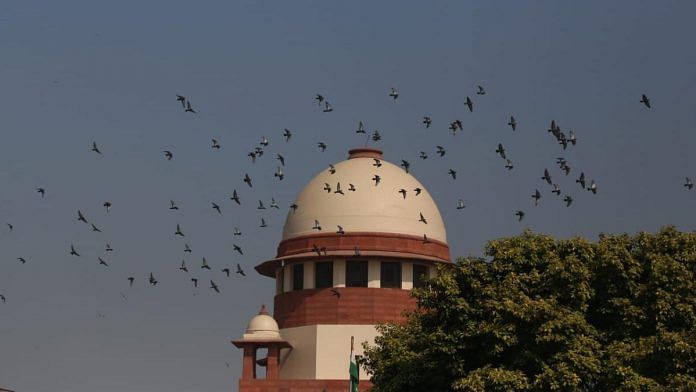New Delhi: A Supreme Court bench led by Justice D.Y. Chandrachud upheld a 2010 Delhi High Court verdict stating that the Narendra Modi government has to give permanent commission to women officers in the Army irrespective of their years in service.
SC directed the Centre to grant permanent commission to all women officers who opt for it and also ordered that the officers shall be eligible for command posting in the Army. The ruling will have a retrospective effect. The court granted three months time to the Centre to implement its order.
The top court also dismissed the argument put forth by the Centre stating that women were “physiologically weak” to be given permanent commission and command appointments. SC called it stemming from a deeply entrenched gender stereotype which looks at a man being dominant whereas women are looked at as caretakers.
“The Centre’s submissions that women are physiologically weak are based on a deeply entrenched stereotype that men are dominant and women are basically caretakers. Taking care of family is a woman’s job. This is deeply disturbing,” said the SC.
The ruling has a retrospective effect
SC pointed out how the Centre waited for nine years before coming out with a notification in 2019 allowing permanent commission to women in eight streams.
The step by the Centre to give permanent commission to short service commissioned women officers in ten streams is a recognition of constitutional mandate, held the SC.
However, the court said that the policy to deny permanent commission to SSC women officers on the grounds that they have crossed 14 years of service will be a travesty of justice. It should apply equally to all who are currently in service even if they have crossed 14 years of service, held the SC.
Further, the court said that absolute bar on women being given command assignments violates Article 14 and absolute exclusion of women from command appointments is not justified.
Will not be applicable to combat roles
Justice Chandrachud while holding that all women officers in the Army should be granted permanent commission also ruled that this verdict will not apply to the combat roles.
The Centre had moved the apex court challenging the Delhi High Court March 2010 verdict directing the armed forces to grant permanent commission to women officers on Short Service Commission.
The apex court did not stay the order and issued notice to women officers, who had moved the High Court.
The government in the meanwhile had rolled out a policy in February 2019 granting permanent commission in ten branches of Army – Judge Advocate General, Army Education Corps, Signals, Engineers, Army Aviation, Army Air Defence, Electronics and Mechanical Engineers, Army Service Corps, Army Ordinance Corps and Intelligence.
However, the benefit was not applicable retrospectively and thus ruled out the women officers in the job now.
Also read: SSC women Army officers don’t want ‘freebies’, say fight is for parity not pension
“An insult to women as well as the Army”
Justice Chandrachud led bench also called it an insult to women as well as the Army “when aspersions are cast on women, their ability and their achievements in the Army.”
In November last year, the Supreme Court had said that the armed forces should consider granting permanent commission to women officers in armed forces under the Short Service Commission (SSC) before March 2019.
The top court had then asked the Centre to look at the positive side of granting permanent commission to women officers in retrospective effect, and expand the ambit of the benefit to women officers serving under SSC before March 2019.
“It will show India in a different way on the world platform”, Court had observed.
SC also pulled up the Union Govt for thwarting the implementation of the Delhi HC verdict and stated that “scant respect was shown by the Centre.”
Prime Minister Narendra Modi has earlier in 2019 supported the idea of permanent commission for women and announced the change in policy in his Independence Day speech.
In the absence of implementation of policy in retrospective effect, women officers working for several years in the armed forces were unlikely to reap the benefits.
According to the new system put in place by the government, women officers under SSC would have to indicate the choice for permanent commission within four years of service.
These women who were before the court were fighting the case for over 11 years and are still in the Army.
Senior advocate Aishwarya Bhatti and Meenakshi Lekhi had appeared for women officers and had contended that the Army has offered to grant permanent commission to women officers prospectively, from April 2020, and in the absence of retrospective effect, the policy will not benefit women who fought against gender bias in the forces.
Also read: Army open to giving women officer litigants pension on completion of 20 years of service




The supreme court generally, and this particular judge is becoming meddlesome day by day. If these women officers in the forward positions are abducted and abused, will the supreme court judge rescue them? They will pass one more stupid order giving “directions” to the government. The supreme court cannot sit in judgment over the decades and perhaps century of experience of military and government,